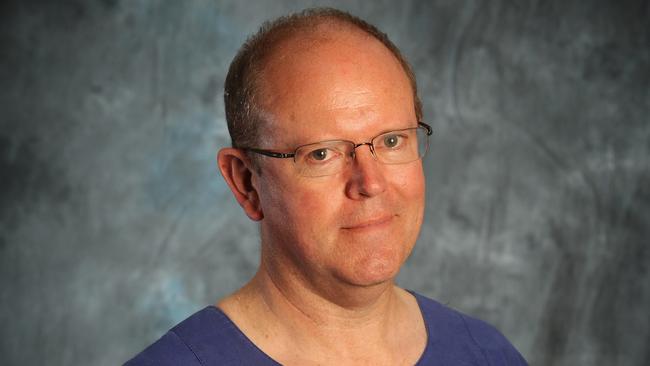New ‘groundbreaking’ research gives hope for stroke patients with brain blood clots
REVOLUTIONARY surgery to remove brain blood clots can still give a patient a healthy and independent life even up to 24 hours after a stroke, an international clinical trial has found.

VIC News
Don't miss out on the headlines from VIC News. Followed categories will be added to My News.
REVOLUTIONARY surgery to remove brain blood clots can still give a patient a healthy and independent life even up to 24 hours after a stroke, a groundbreaking international clinical trial has found.
Melbourne researchers said lifting the time for mechanical thrombectomy from six to 24 hours after stroke would allow thousands more Australians to have the lifesaving treatment.
The ability to remove the clot and restore blood flow to the brain will particularly benefit those suffering serious strokes in regional areas and the “wake-up stroke” victims, who don’t know what time the episode occurred and hence cannot access treatment.
Director of the NeuroIntervention Service at Royal Melbourne hospital, Professor Peter Mitchell, said five clinical trials published in 2015 — including one of theirs — proved those who underwent clot retrieval were twice as likely to recover well if the procedure was started within six hours.
But, intriguingly, there were patients whose scans showed salvageable brain tissue beyond the designated six hours.
The aim was to investigate whether these patients could also be saved.

CT perfusion imaging was used to select those with a bigger proportion of threatened brain tissue than dead tissue.
The plan was to enrol 500 patients, but the trial’s success after just 206 meant it became unethical not to extend the time window for everyone.
The study found almost half the patients who received the surgery between six and 24 hours were living independently three months after their stroke, compared with 13 per cent who were not treated.
The results were presented at the European Stroke Organisation Conference in Prague.
Prof Mitchell said the results should not change the message that timely stroke treatment was crucial, but it would reassure those who previously thought they had no treatment options.
Ischaemic stroke, caused by a blood clot in the brain, accounts for 80 per cent of the 55,000 strokes suffered by Australians each year.
Of these, 20 per cent are surgery candidates.
Prof Mitchell, the lead investigator of the Australian site with colleague Dr Bernard Yan, believed this would change international practice “very soon”.
“This is going to help with the cases we currently agonise over,” he said.
“Until now, if we’ve got someone eight or 10 hours after stroke, even if they have favourable brain imaging, there’s been no evidence it’s beneficial to treat them.
“We now know if you have your stroke while asleep, don’t know when it happened, or you’re a long way from medical treatment, you can still benefit from treatment.”


